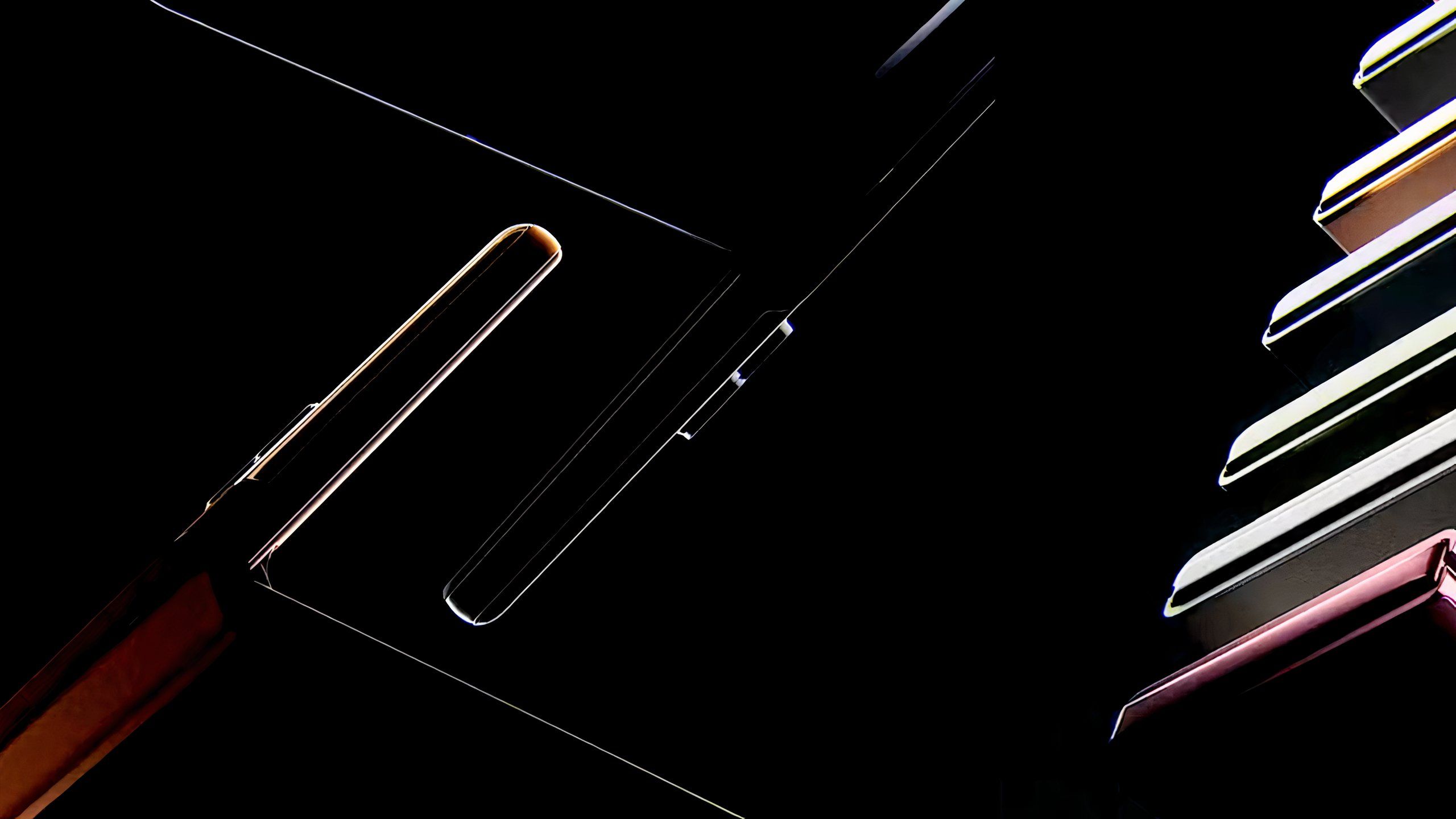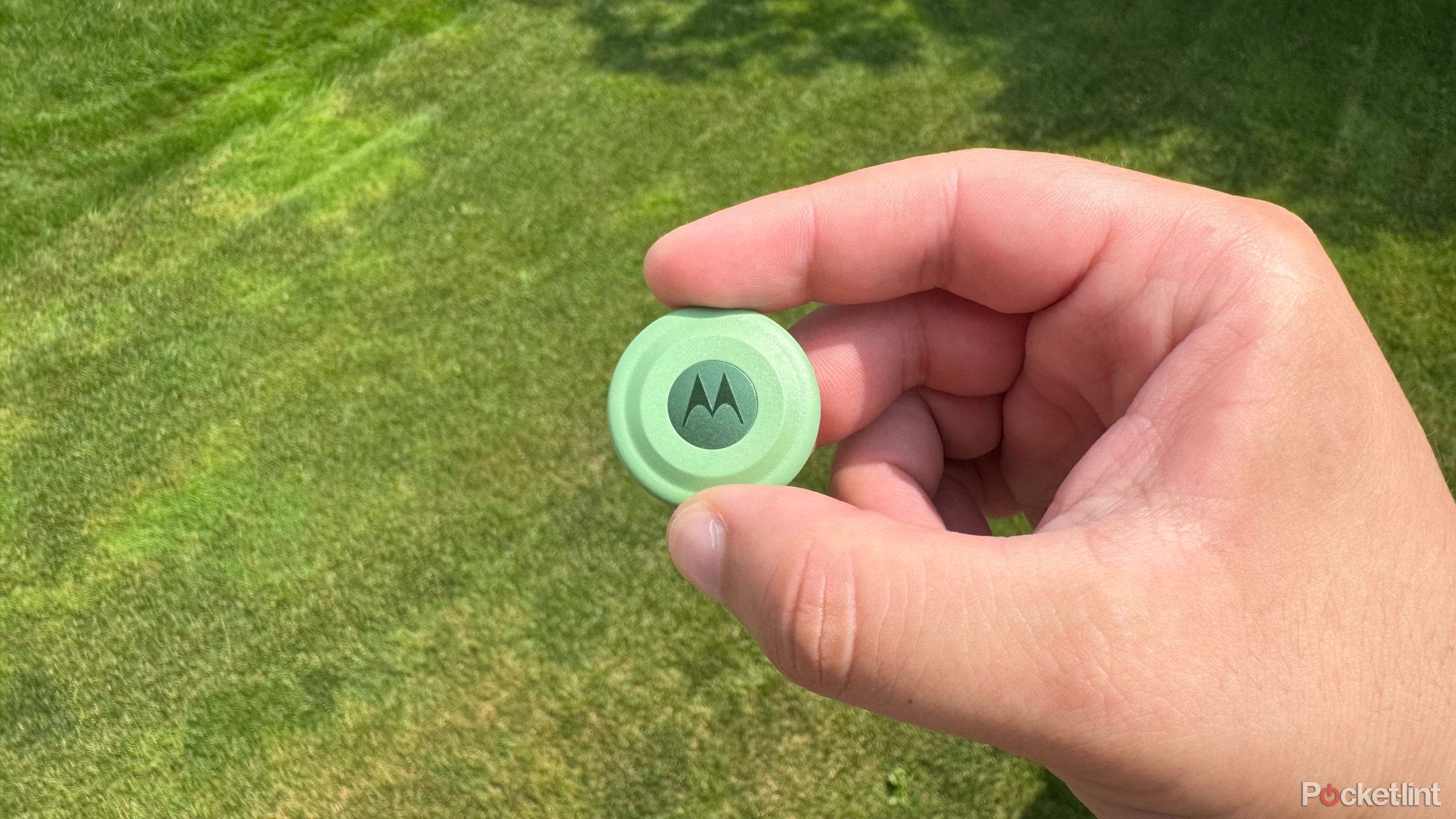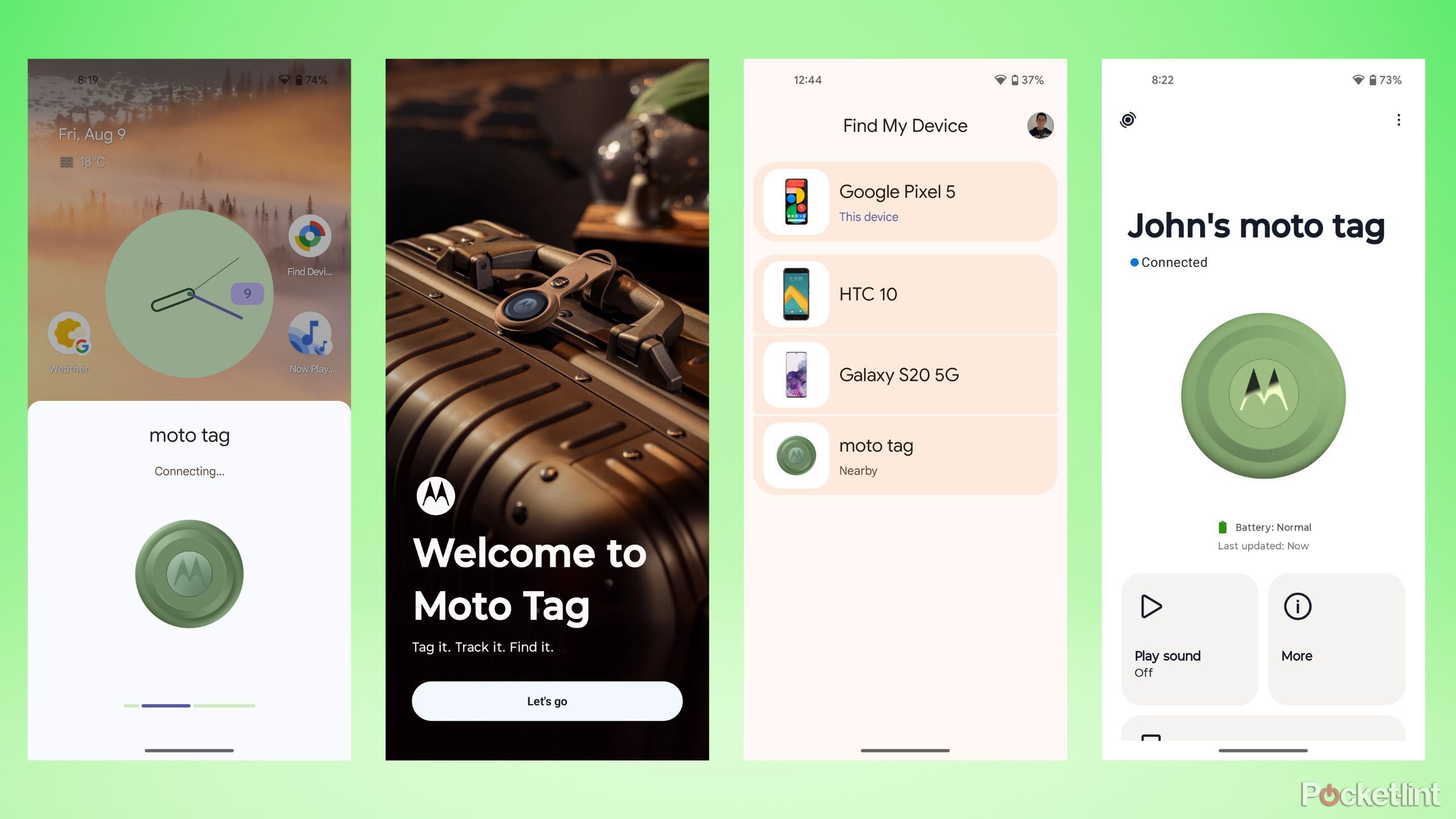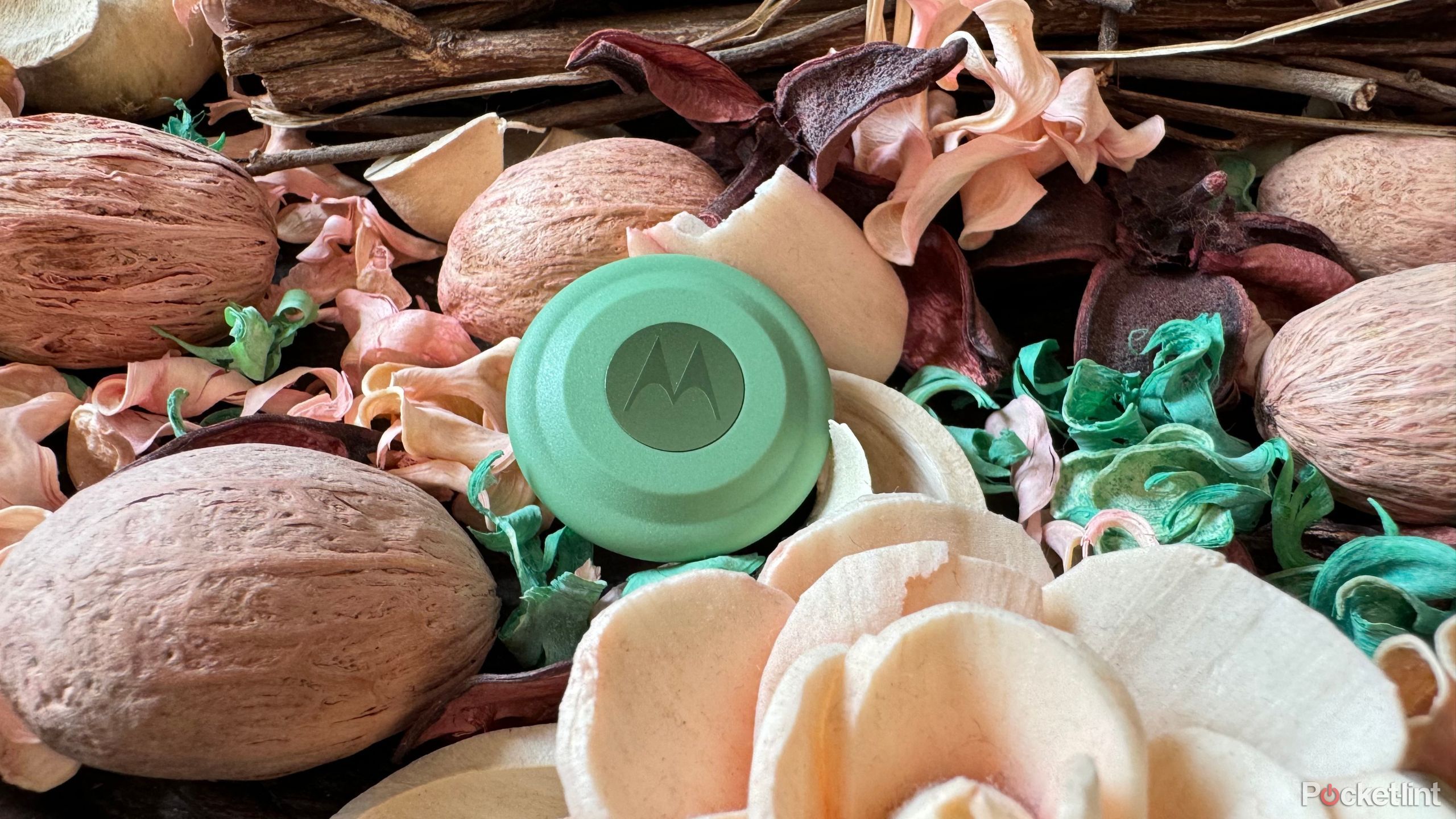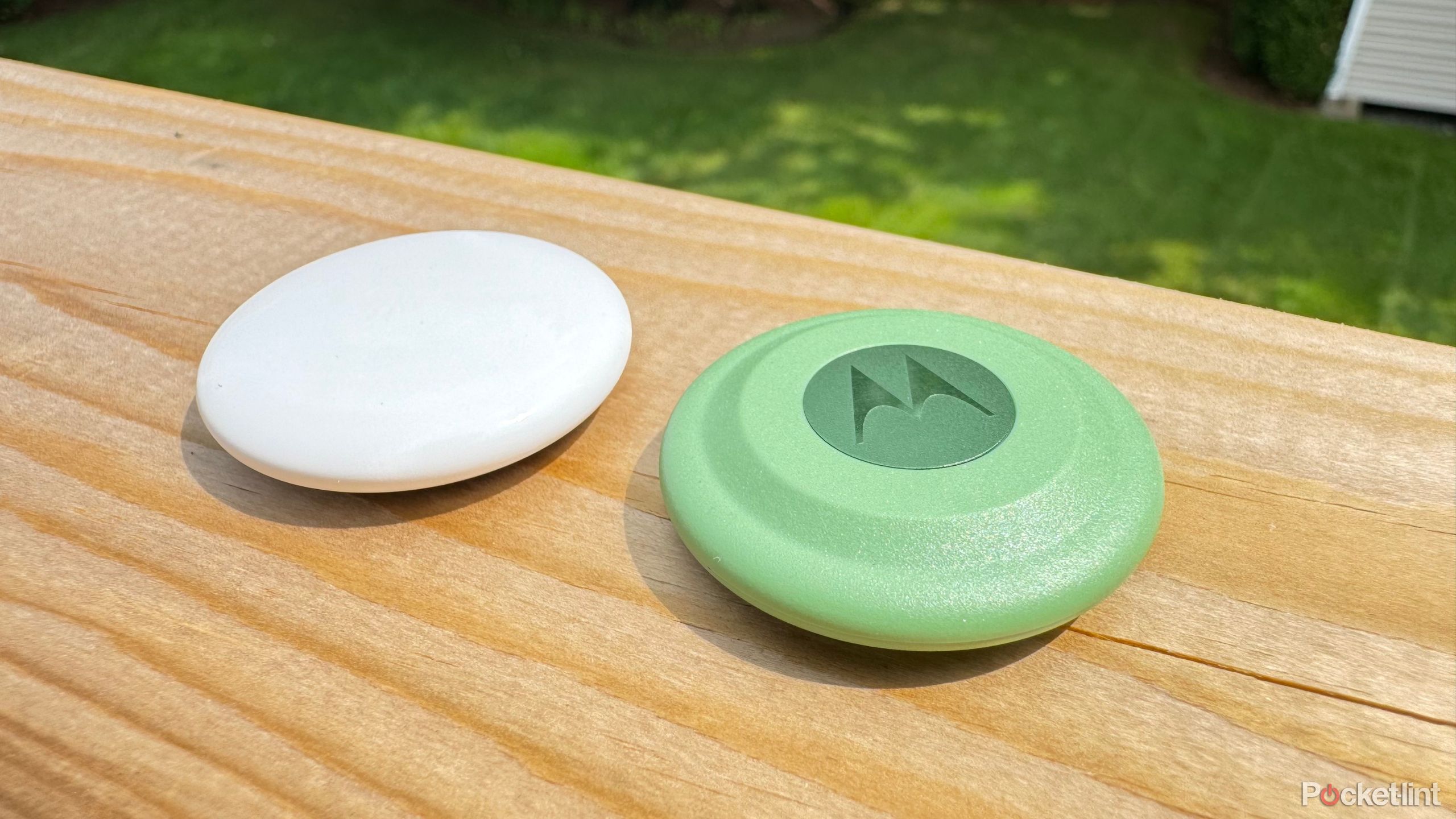Key Takeaways
- Motorola’s new Moto Tag is a well-built and easy-to-use tracking device.
- The Moto Tag comes with both Bluetooth and ultra-wideband (UWB) radios.
- A single tracker can be had for $29, and a 4-pack is available for $99.
The latest release in Motorola’s hardware ecosystem is its new Moto Tag product — an AirTag-like Bluetooth tracker that’s compatible with just about every modern Android phone currently on the market.
With Google’s recent reboot of its Find My Device network, Motorola has been able to tap into a burgeoning market of tracker devices within the Android ecosystem. The end result is the Moto Tag, which can perhaps be described as the quintessential AirTag equivalent for folks on the Android side of the smartphone duopoly.
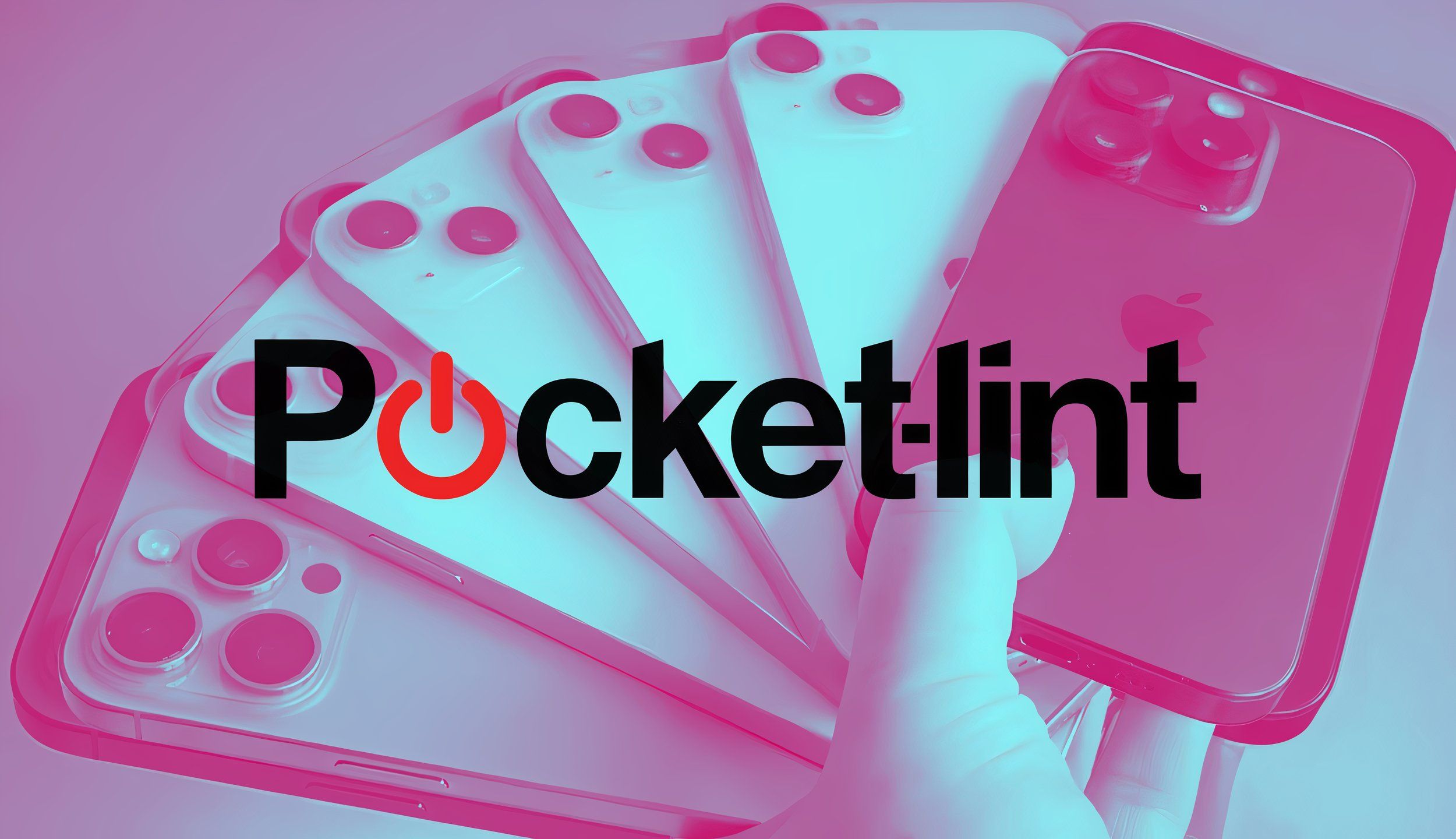
See our process
How we test and review products at Pocket-lint
We don’t do arm-chair research. We buy and test our own products, and we only publish buyer’s guides with products we’ve actually reviewed.
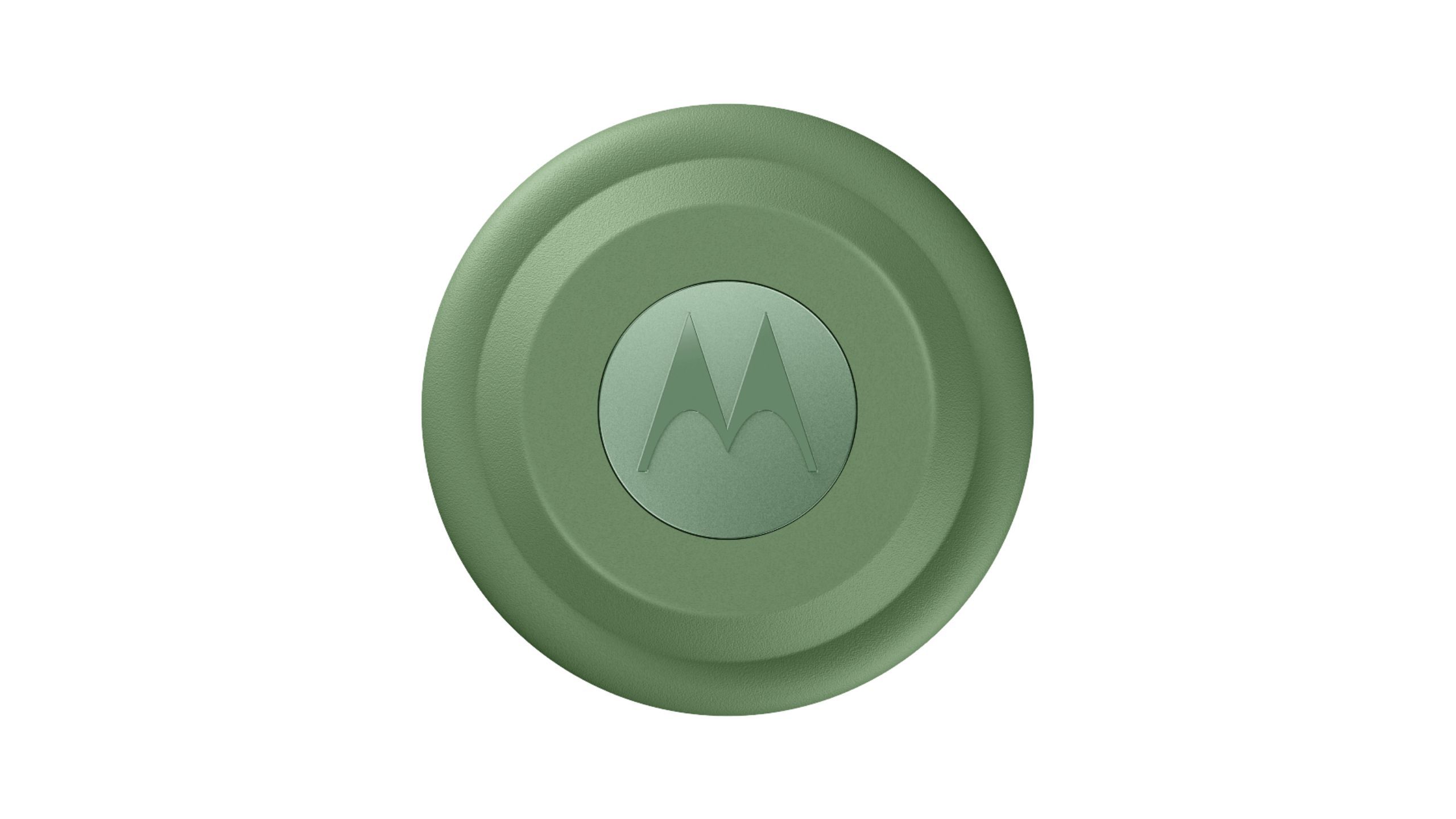

Recommended
Motorola Moto Tag
The moto tag is Motorola’s new tracker device that works with Android’s Find My Device network. It comes with both Bluetooth and ultra-wideband radios, IP67 water and dust resistance, and a full year of battery life per charge.
- Excellent build quality
- Includes an ultra-wideband radio
- Affordable price
- Doesn’t come with a case or a carabiner
- Not all phones can take advantage of ultra-wideband yet
- Only works with Android devices
Price, availability, and specs
The Moto Tag is available in two distinct offerings: a 1-pack that costs $29, and a 4-pack that’s listed for $99. If you spring for a single tracker tag, you’ll be getting Motorola’s Sage Green colorway. The multipack, on the other hand, ships with two Sage Green trackers as well as two Starlight Blue trackers.
For $29, you’re getting a tag that includes both Bluetooth and ultra-wideband (UWB) radios, IP67 certification, as well as a dedicated multifunction button.
Ultra-wideband is a noteworthy inclusion, being a short-range radio technology that improves tracking accuracy. Not all Android phones have corresponding UWB support yet, which is required to take advantage of the feature. The Moto Tag is effectively future-proofed here, as more and more handsets are expected to launch with the tech on board in the coming months and years.
IP67 water and dust resistance is another very welcome addition. The certification specifies that the tracker “can be submerged up to 1 meter in still, fresh water for up to 30 minutes.” It’s also designed to “protect against the ingress of solid foreign objects of size bigger than 1 millimeter.”
Included with each tag is a CR2032 button battery, which Motorola says is engineered to last an entire year on a single charge. A simple pull tab will immediately power the device on out of the box, and from there, you’re off to the races.
What I liked
An attractive appearance, a simple setup process, and support for precise tracking
Put simply, Motorola has crafted a beautiful piece of hardware in the Moto Tag. The build is entirely made of plastic, but it’s not the cheap stuff — there’s no creaking or flexing to be found here.
I’m particularly fond of the sage green color option, which adds a splash of personality to the otherwise sophisticated design of the Moto Tag.
The tracker is shaped similarly to Apple’s popular AirTag product, in that it’s a small circular gadget that’s roughly the size of a large coin. In all dimensions, the Moto Tag roughly approximates Apple’s offering, and that’s not a bad thing.
I’m particularly fond of the sage green color option, which adds a splash of personality to the otherwise sophisticated design of the Moto Tag. The shiny Motorola emblem sits proudly centered on the front, but not in a way that comes across as gaudy. From all angles, Motorola’s new tag is an attractive piece of kit.
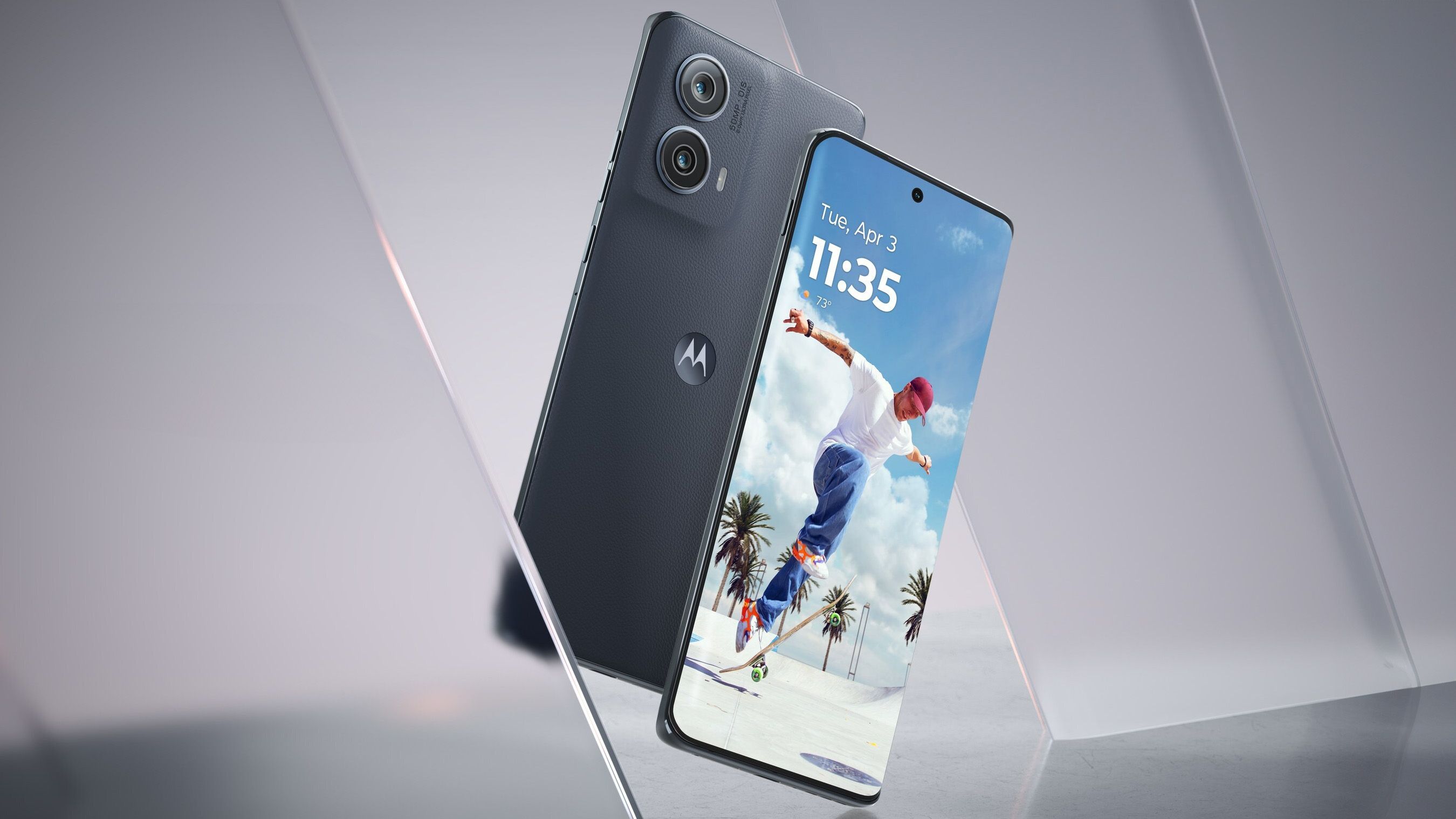
Related
Motorola reveals Edge (2024) with updated chipset and bigger battery
The comapany is back with the refreshed Edge (2024), a smartphone that offers minor upgrades over its predecessor
Motorola is launching its Moto Tag at the perfect time, with Google having just overhauled its Find My Device network to better compete with Apple’s Find My Network. The setup process is dead simple and incredibly user-friendly.
As soon as you pull off the tab separating the battery cell from the tag itself, the tracker springs to life. An interface immediately pops up on your Android phone, prompting you to connect the tag to the network. After about a minute of loading, the device is added to your Find My Device app.
From here, you’re able to rename the tag, invite another Google Account to access its location, adjust the volume of its ringer, and check battery life status. There’s a button that activates the tracker’s ringer, a map interface to locate the device, and a ‘Find nearby’ option that visually guides you towards the unit.
The tag’s ringer is loud enough to hear from a distance, and the tone chosen is a simple ring that grabs your attention without sounding overly grating or obnoxious.
During setup, you’re also prompted with the option to download Motorola’s own Moto Tag application from the Play Store. The app is optional, and provides the same basic functionality that you’ll find in Google’s Find My Device solution.
The only additional toggle within Motorola’s app is the option to enable the double-press function of the tag’s physical button. Once pressed, it’ll play a sound on your phone, which is useful in the event that you misplace it.

Related
Is Apple redesigning the AirTag 2? Here’s what the rumors say
The AirTag 2 is rumored to release in 2025 with interesting internal changes.
What I didn’t like
Compatibility might be a sore point for some
The main issue I ran into while using the Moto Tag, was simply that I couldn’t take advantage of its UWB-enabled precise tracking capabilities. I could certainly still locate the approximate location of the tag, but the added flexibility of UWB is dependent on phone makers stepping up to the plate.
This is no fault of Motorola’s — Android manufacturers as a whole have been much slower to adopt the short-range radio technology than, say, Apple has with its iPhone lineup. Even Google’s latest non-Pro Pixel 9 flagship is inexplicably missing support for the tech.
Unlike the Samsung Galaxy SmartTag 2 tracker, which includes a keyring hole that can be used with a carabiner, you’ll have to invest in a separate setup if you spring for Motorola’s offering.
Speaking of the iPhone, Motorola’s tracker isn’t compatible with Apple’s Find My Network in any way. Again, this isn’t Motorola’s fault. Unless a cross-platform industry standard is established in the future, the Moto Tag is an Android accessory, and the AirTag is an iPhone accessory.
The Moto Tag also doesn’t come with any sort of built-in solution for securely attaching the tracker to your items. Unlike the Samsung Galaxy SmartTag 2 tracker, which includes a keyring hole that can be used with a carabiner, you’ll have to invest in a separate setup if you spring for Motorola’s offering.
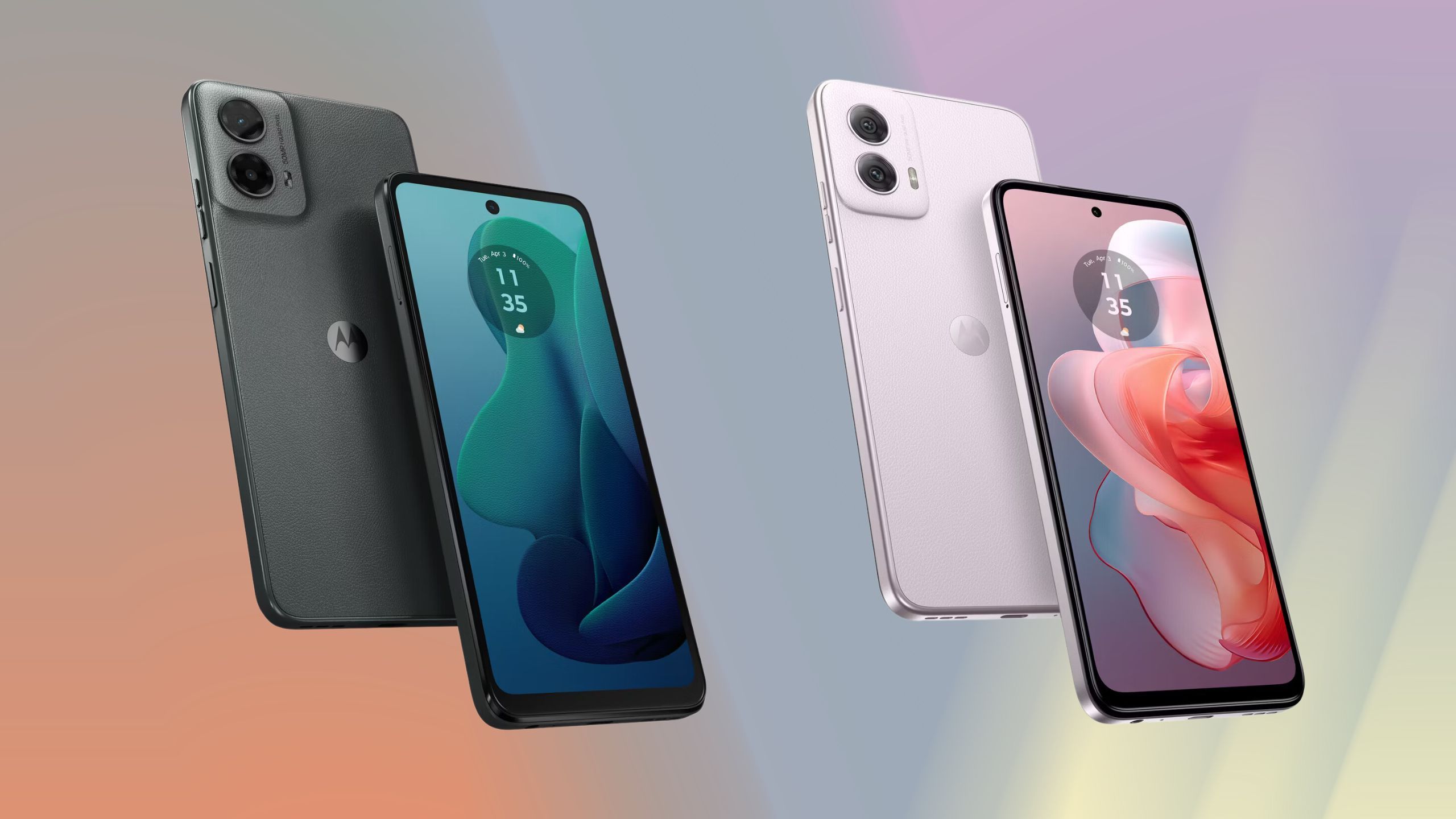
Related
Motorola updates the Moto G 5G, Moto G 5G Power with minor, but welcome, upgrades
The new Moto G and G Power offer modest improvements, and in one case, a slightly better price.
Should you buy a Moto Tag?
If you want a no-fuss tracking device that works seamlessly with your Android phone, this is a great option
Motorola has successfully built a no-nonsense device tracker that ticks all the right boxes. It offers water and dust resistance, ultra-wideband connectivity for precise location tracking, and an overall handsome physical design.
For $29, the Moto Tag is an excellent pick-me-up or stocking stuffer for anyone with an Android phone. It’s unfortunate it doesn’t work with the iPhone, but that’s certainly not the fault of Motorola or of the tracker itself.
If you find yourself frequently misplacing your keys or backpack, or want some additional piece of mind while traveling with luggage, the Moto Tag is about as easy to recommend as it gets.



